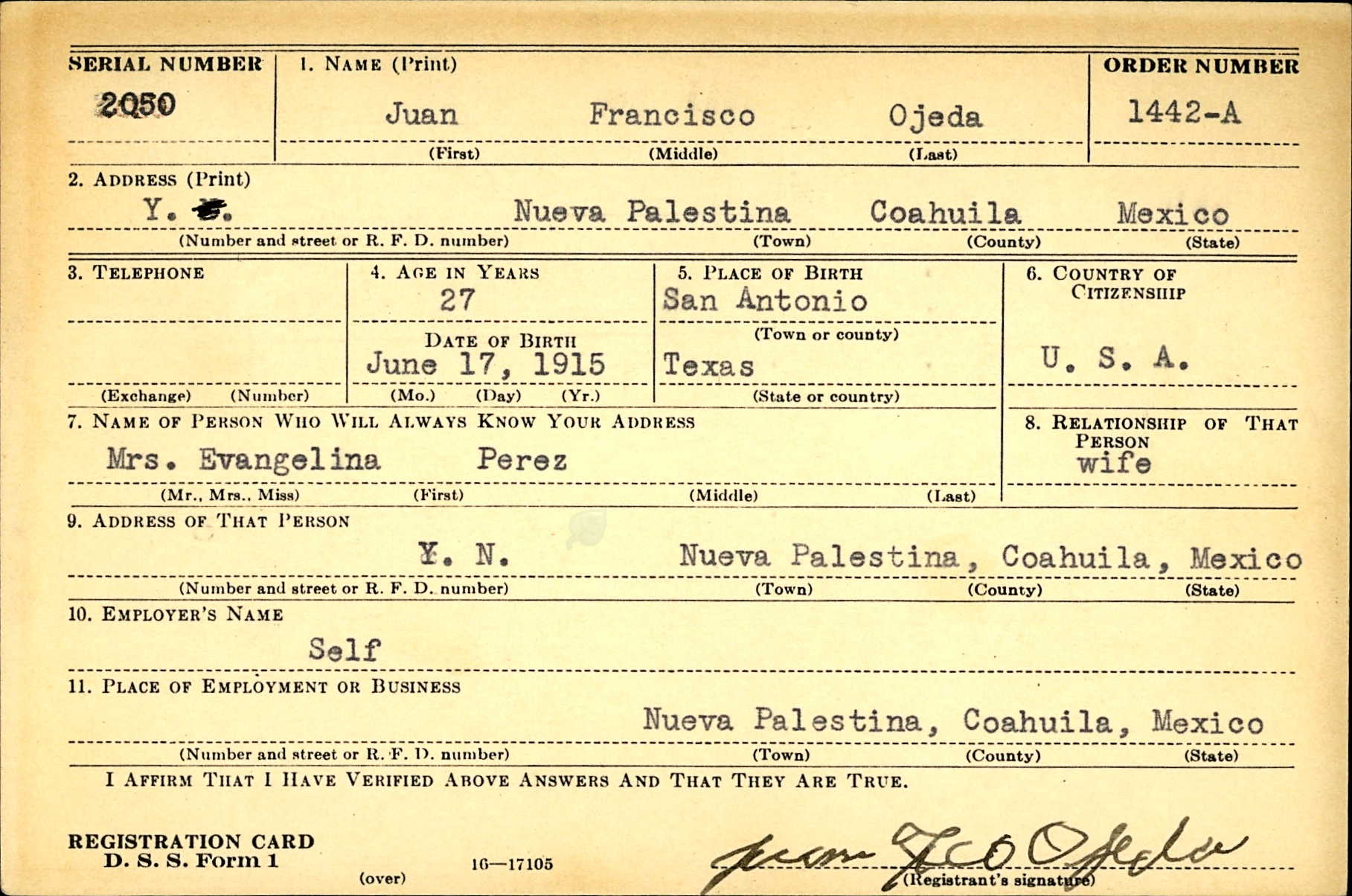
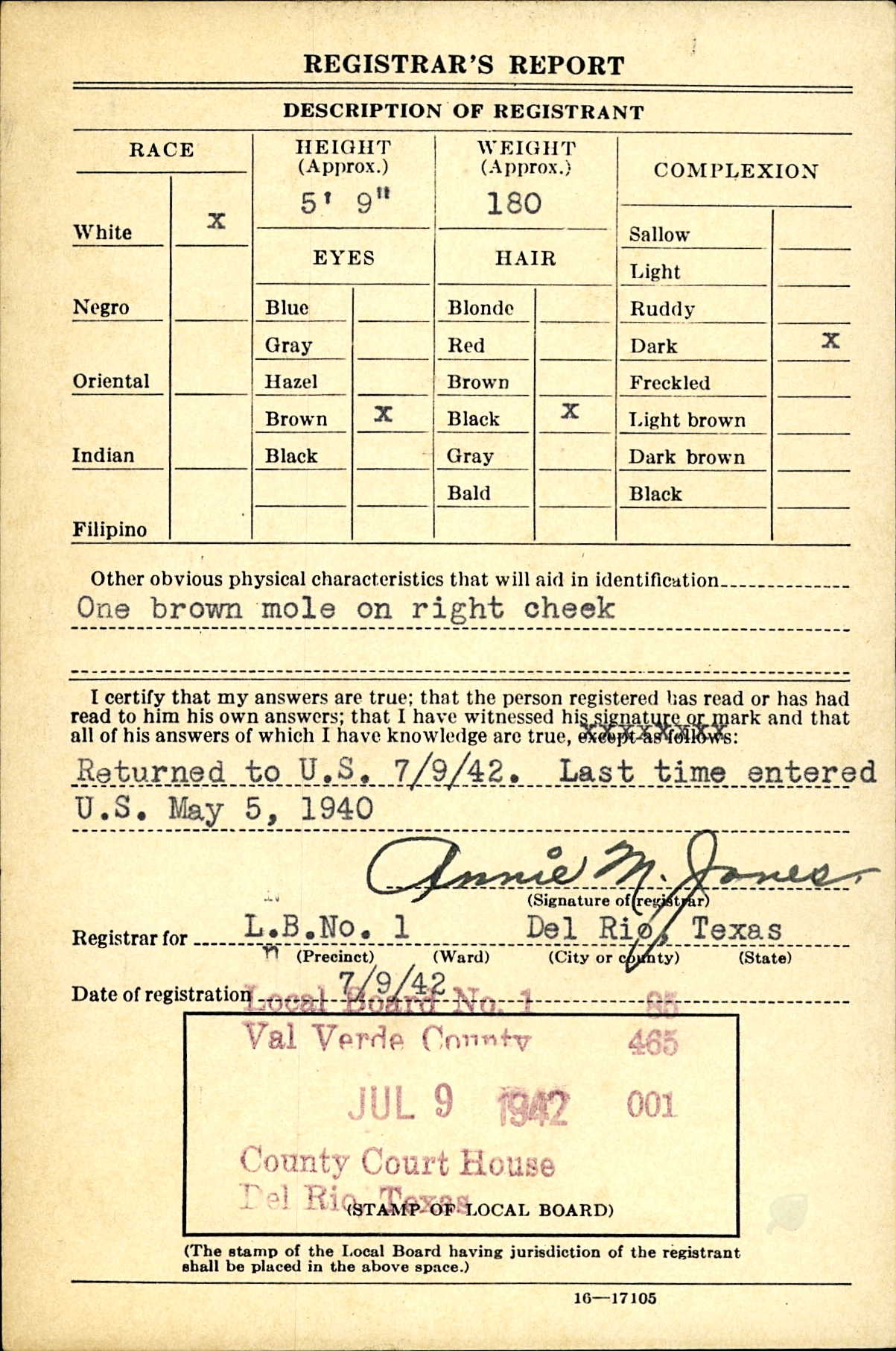
I will always wonder the trials and tragedies Aunt Olivia and my uncles might have experienced during their World War II service. The more I delved into my Vietnam experience, the more I wished I had spent time with Uncle Juan Ojeda, Uncle Samuel Tijerina, Uncle Pablo Garza, Uncle Filiberto Tijerina and Aunt Olivia Tijerina. They all experienced World War II service, and but for a very brief account from Uncle Samuel and Aunt Olivia, I have little information about what they did or experienced in their World War II service. I have no idea if PTSD was an issue for them or how they settled back into life after their service. Primarily for that reason, I undertook a project to document the fears, hardships and experiences I went through during the Vietnam period in my forty-nine months of combat assignments. Later generations may want to know the Vietnam issue from a personal point of view.
I know little of Uncle Juan Ojeda's service except that he was drafted into the US Army. Uncle Juan was then assigned to the US Army Air Forces1 and was stationed at San Antonio's Randolph Field which has since been redesignated as Randolph Air Force Base. Uncle Juan Ojeda trained as a flightline firefighter and occupied the position of Hose One which carries the responsibility of being the first firefighter of the team to engage a burning aircraft or other flightline fire.
Uncle Juan experienced a few challenging flightline mishaps, but his mission-first level of commitment never wavered, and he attacked each flightline fire with the same level of intensity despite the dangers of fuel explosions and chemical exposure.


Uncle Samuel Tijerina also shared with me that the ship in which he was being transported landed in Bangkok, Thailand, for refueling and rations resupply. According to him that was the closest he ever got to Vietnam.
I learned about an incident of Uncle Sam's when he was assigned as a jeep driver to an army major visiting the frontlines somewhere in Italy. Apparently, the army major became disoriented and had Uncle Samuel take a wrong turn leading them into enemy territory. They realized they were in enemy territory when they started taking enemy fire. While still taking enemy fire, Uncle Sam made a u-turn and gunned the jeep taking them out of enemy lines and into friendly territory where both arrived safely.
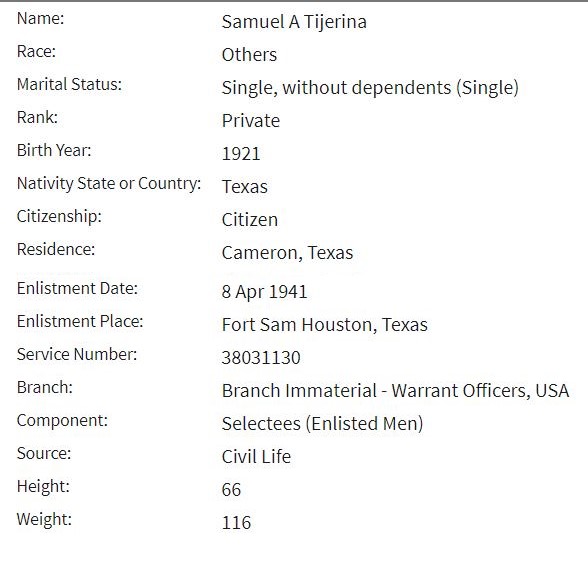
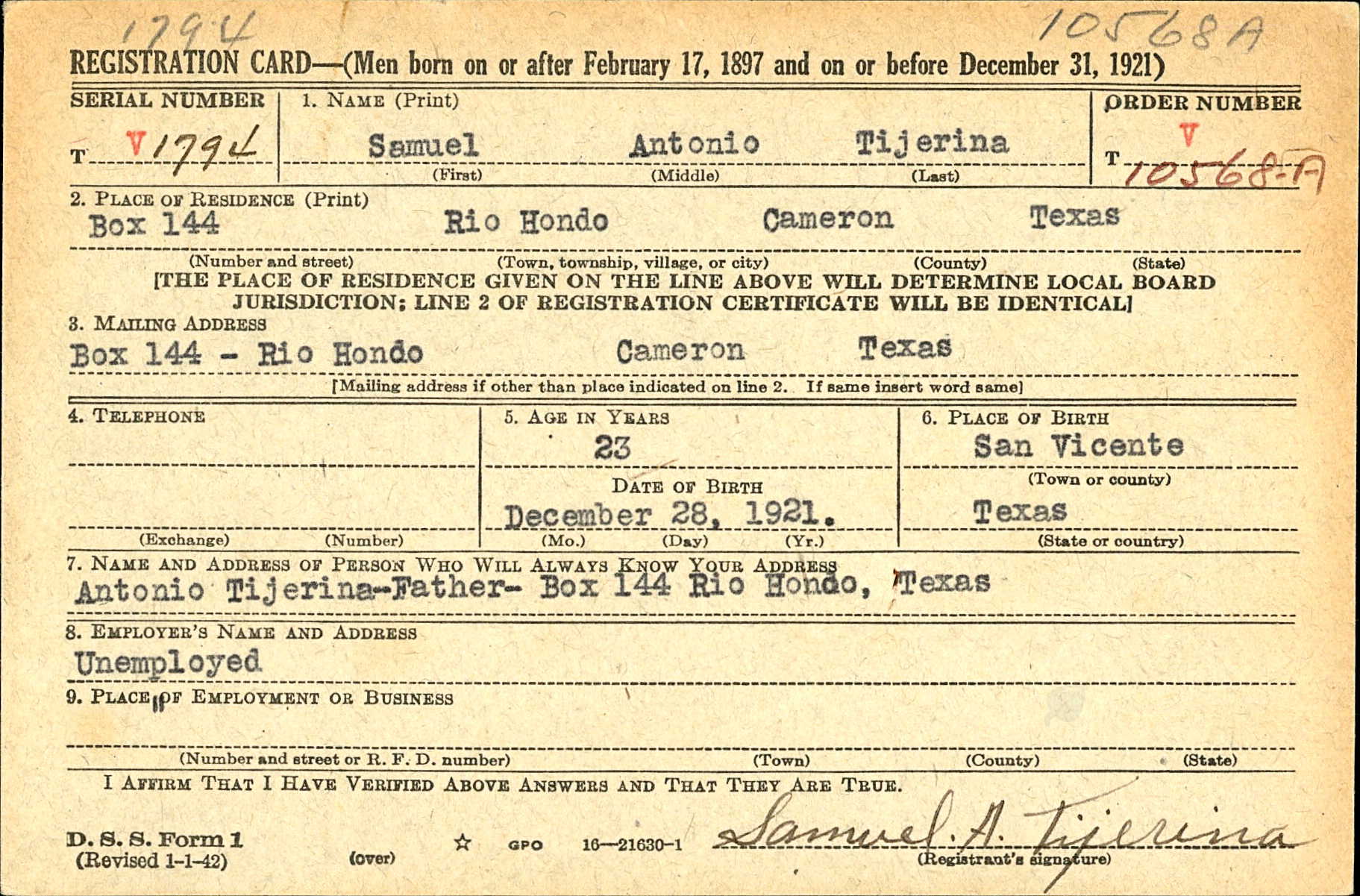
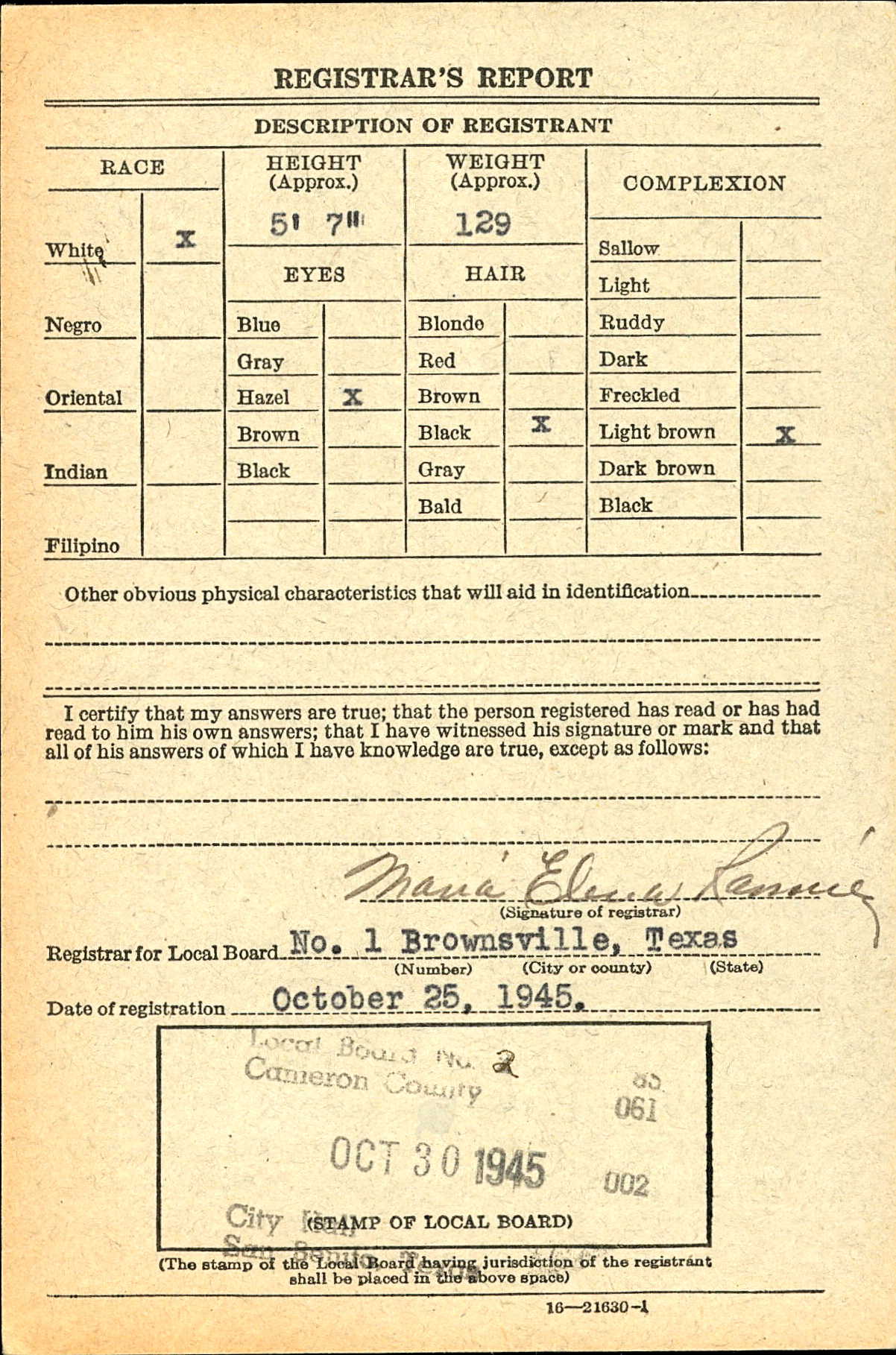
Aunt Olivia Tijerina was in the Women's Army Corps from what she shared with me. I learned from either Mom or Aunt Olivia herself that her assignment was to taxi newly manufactured airplanes from the end of the production line to their parking area in preparation for transport to the battle areas. I learned from my cousin John that Aunt Olivia underwent pilot training and received her pilot's license.
During a sad period in our American history at the start of World War II, Americans of Japanese descent were rounded up and whole families were sent to internment camps to potentially curb Japanese espionage. Aunt Olivia Tijerina was promoted to Sergeant and assigned to the Granada Japanese internment camp in Colorado sometimes called Camp Amache. Aunt Olivia was assigned in the administration and operations of the Granada internment camp. Granada opened August 27, 1942, and reached a peak population of 7,318 persons by February 1943. 2 Camp Granada was designated a National Historic Landmark on February 10, 2006.2
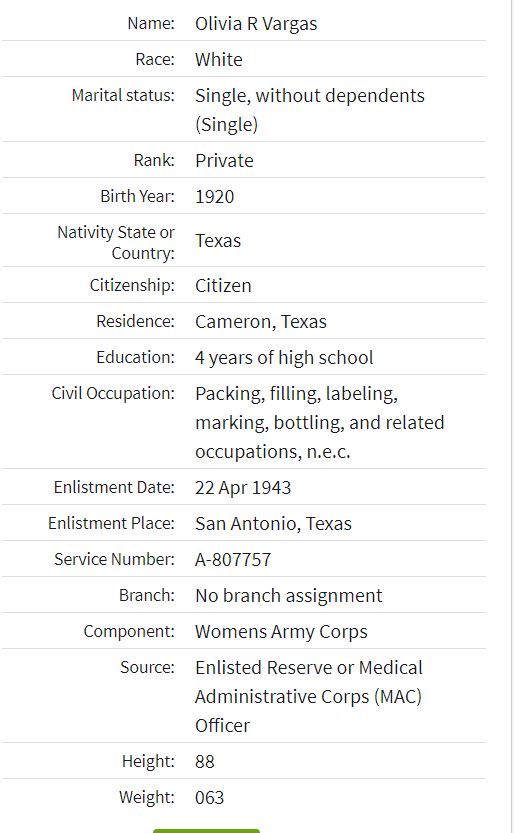
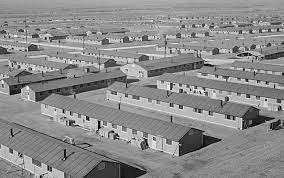
Uncle Pablo Garza was in the Army Air Corps, but I know nothing else beyond that except a comment from my late Cousin Saul Garza who shared with my brother, Raul, stories Uncle Pablo told him. Apparently, Uncle Pablo spent a lot of time in water-filled foxholes. From what I understand, Uncle Pablo caught some form of trench foot3 from water-filled foxholes and would travel to Mexico to buy medication for it. Unfortunately for Uncle Pablo, the Veterans Administration back then did not provide the level of care for its World War II veterans as they do for today's veterans.
My cousin, Pete Garza shared with me recently that Uncle Pablo served in North Africa and spent most of his time there chasing the German Field Marshal Erwin Rommel.
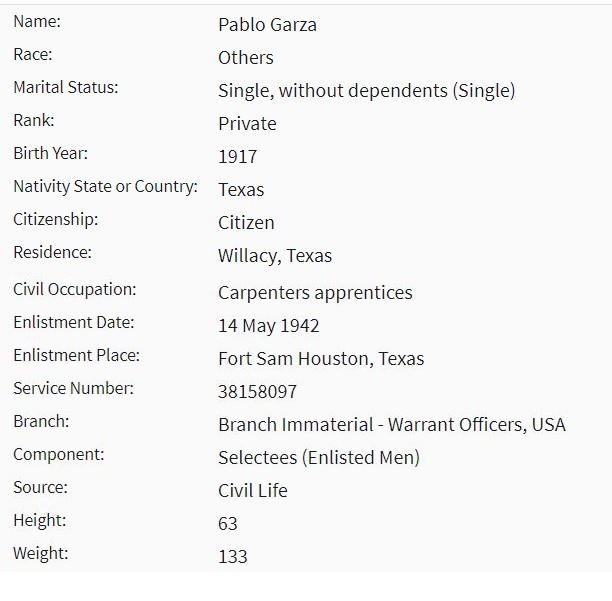
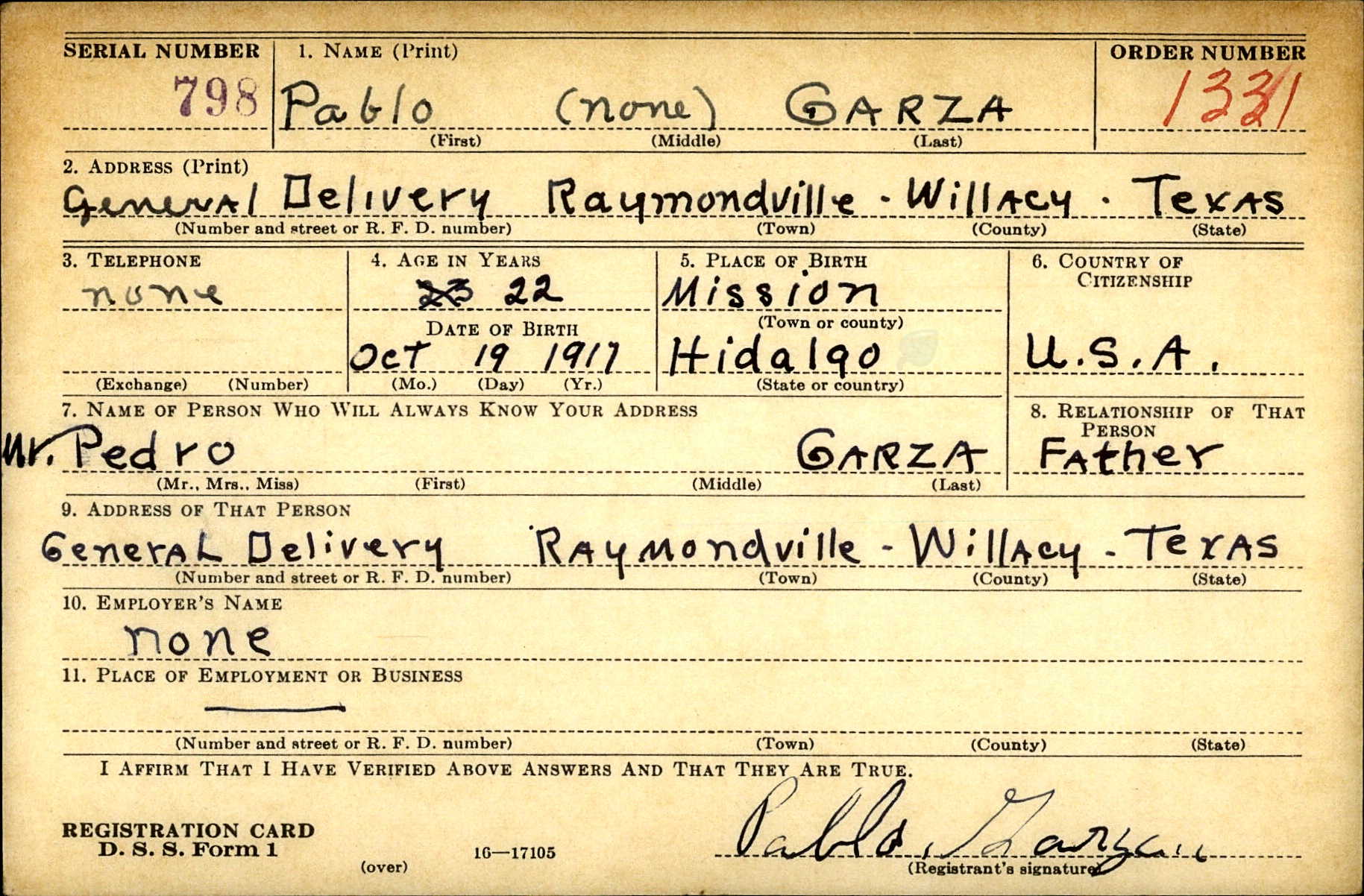
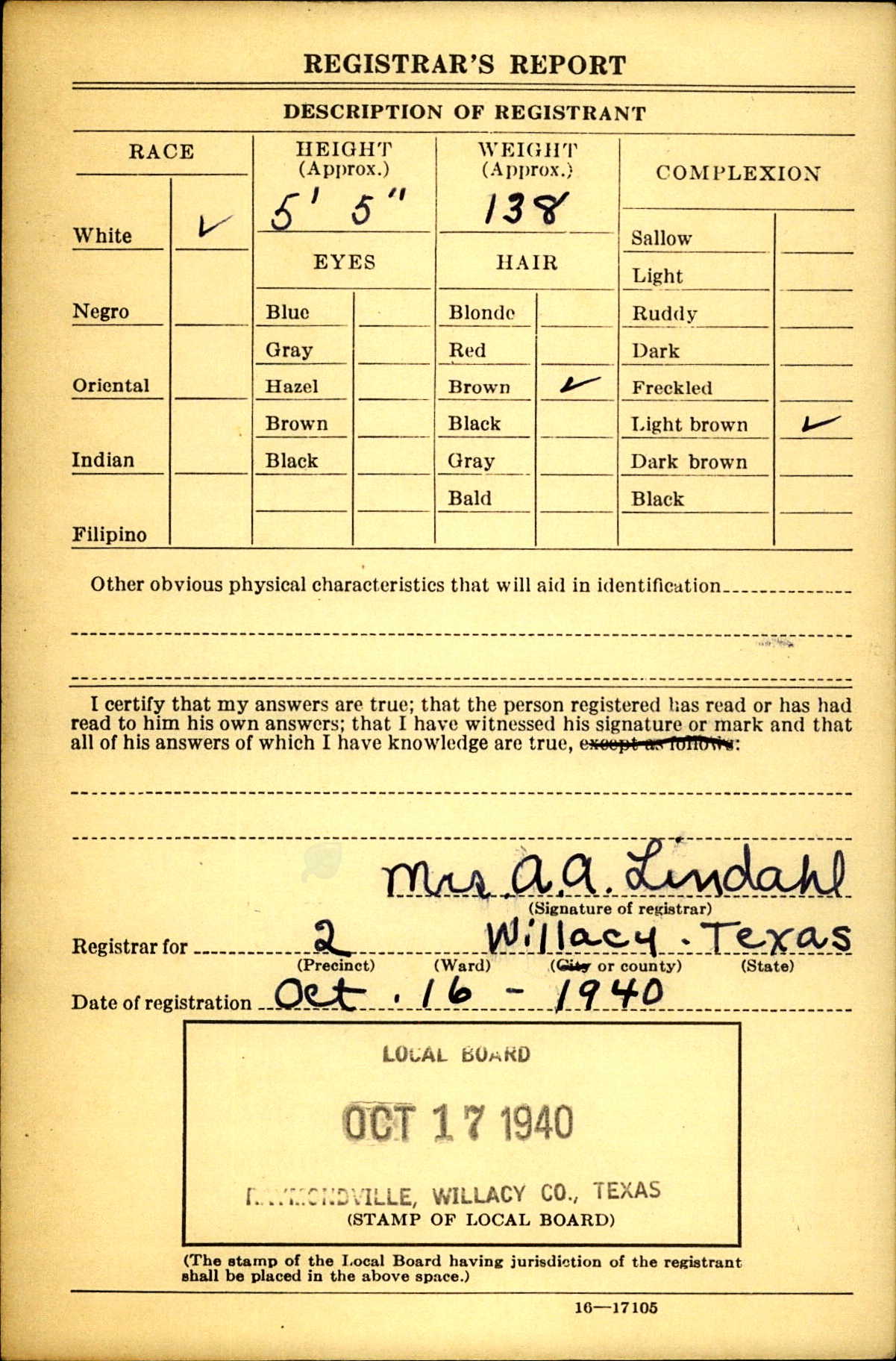
Uncle Filiberto Tijerina was in the US Navy, but I know little else about that except that it was common practice to lay his clothes underneath his mattress to avoid having to iron them. He was drafted into the Navy while working at the former Harlingen Air Force Base. I never thought to ask him just what he did in the Navy or where he might have been stationed. From US Navy logs, I was able to track Uncle Beto's Navy service. Uncle Beto served on the USS Mount Vernon on 12 Dec 1945, was transferred to the USS Okaloosa on 11 Mar 1946, to the USS Mount Vernon on 18 Jan 1946, and finally to the USS LCI(L) 1086 and the USS Remus, on 22 May 1946, then discharged.
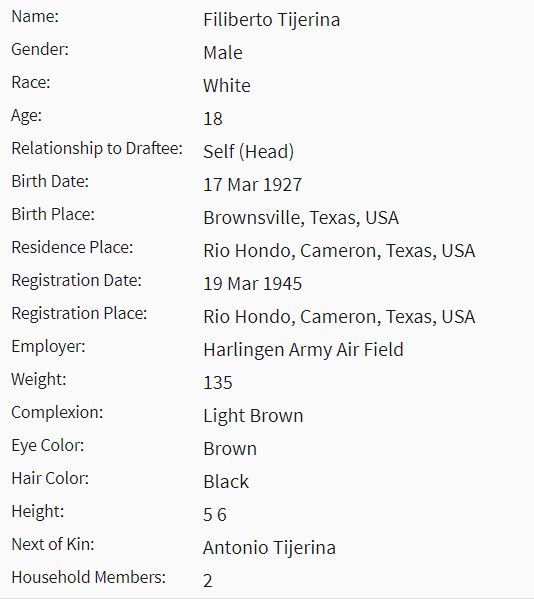
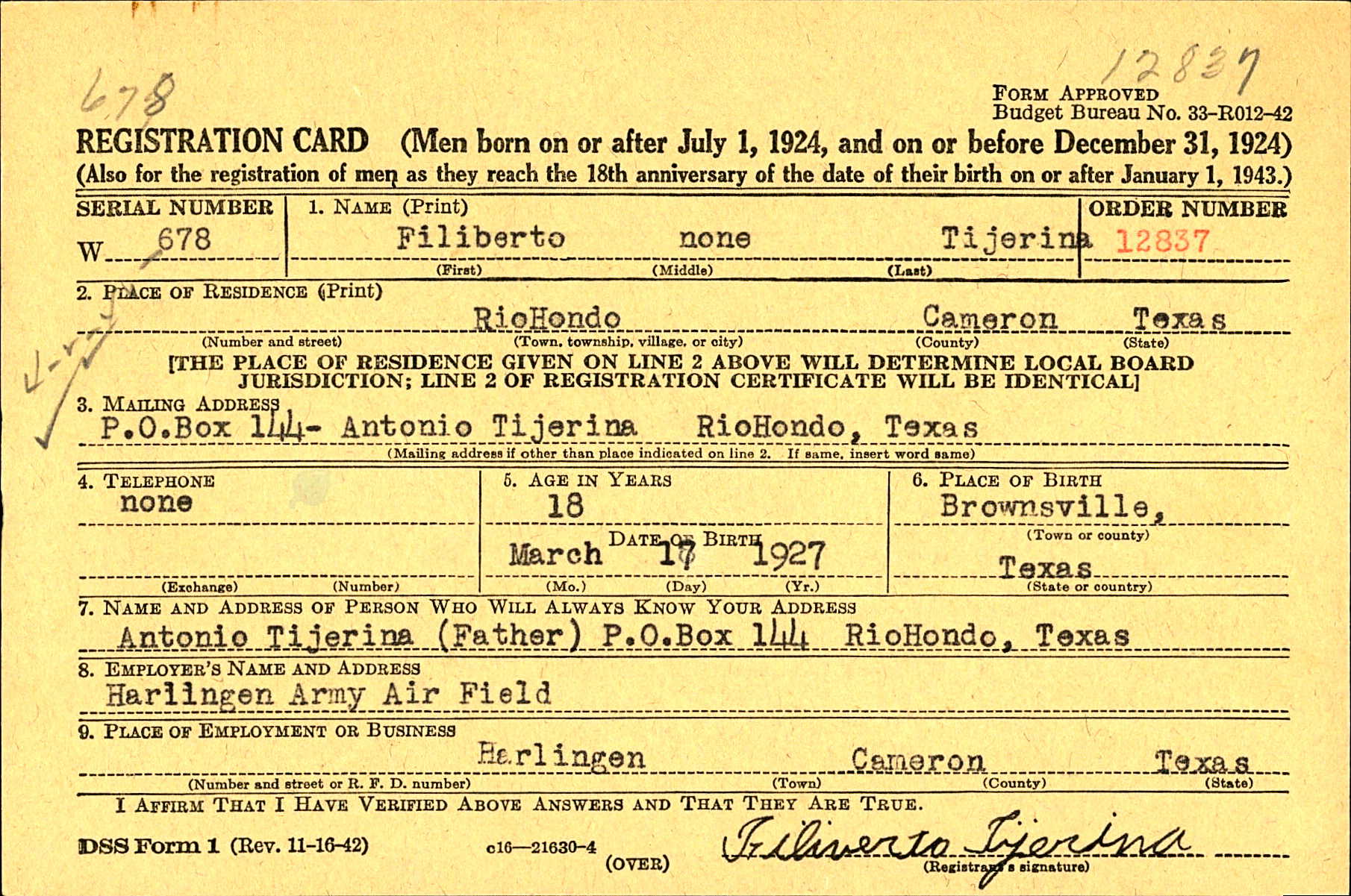
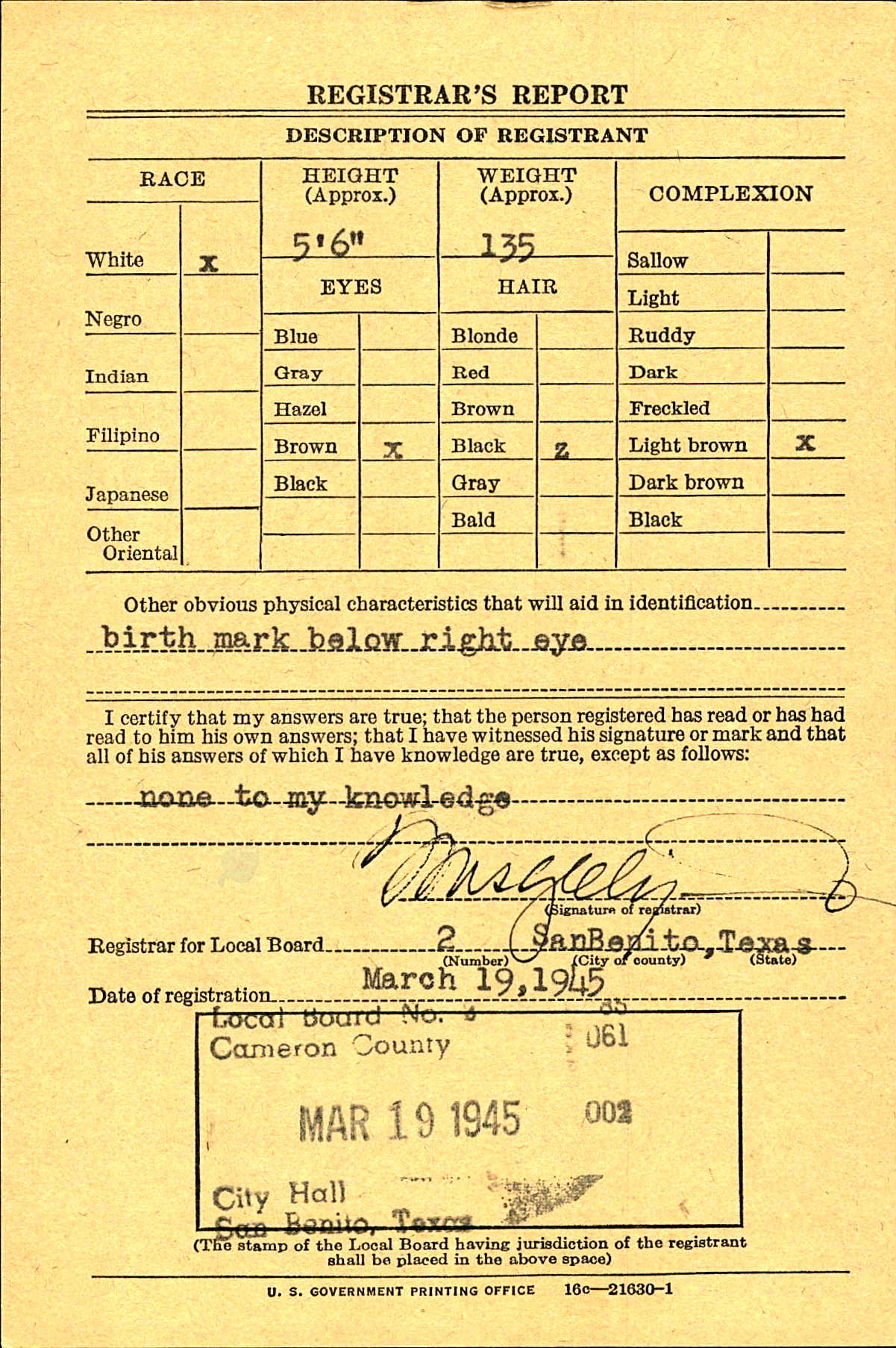
Dad (Jose M. Ojeda) did not pass his draft physical due to a deformity of his feet commonly referred to as Flatfoot (Pes Planus). He was exempt from the draft and military service. His draft registration is below.
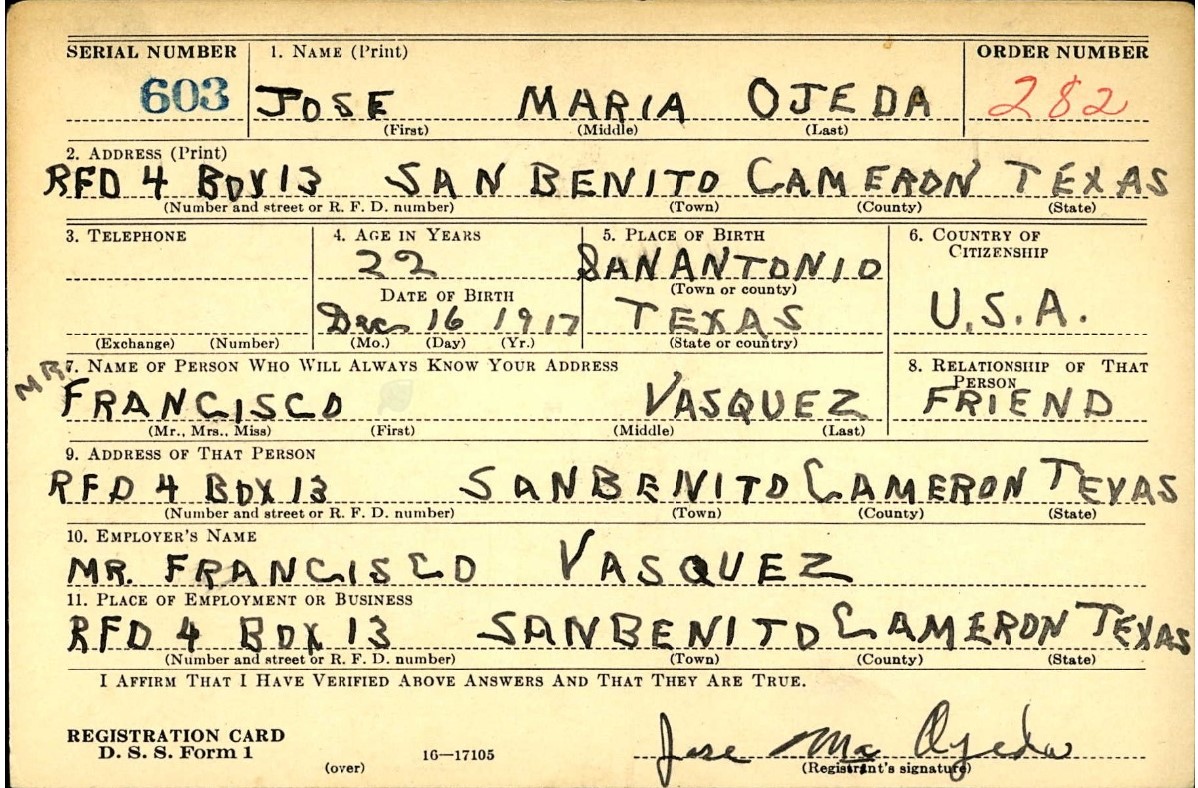
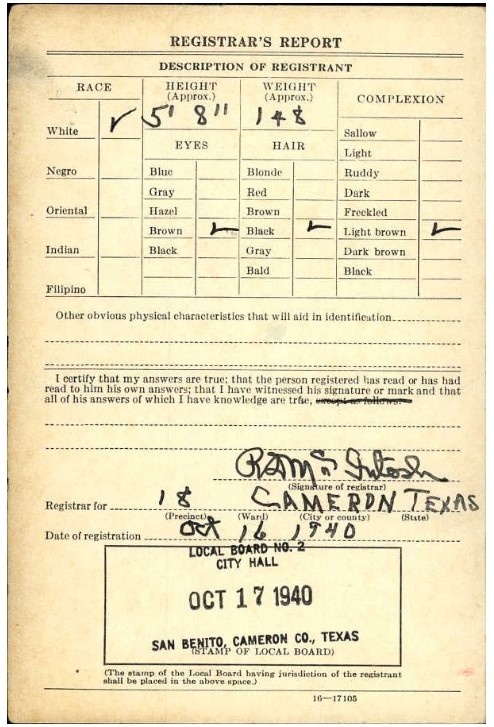
When World War I started, all men of draft age required registration with the Selective Service System. Grandpa Antonio Tijerina fell in that group, so he registered. He was exempt from being drafted due to him being sole provider for my Grandma Wenceslada Arizmendes Tijerina and one child (probably Aunt Beatrice Tijerina).
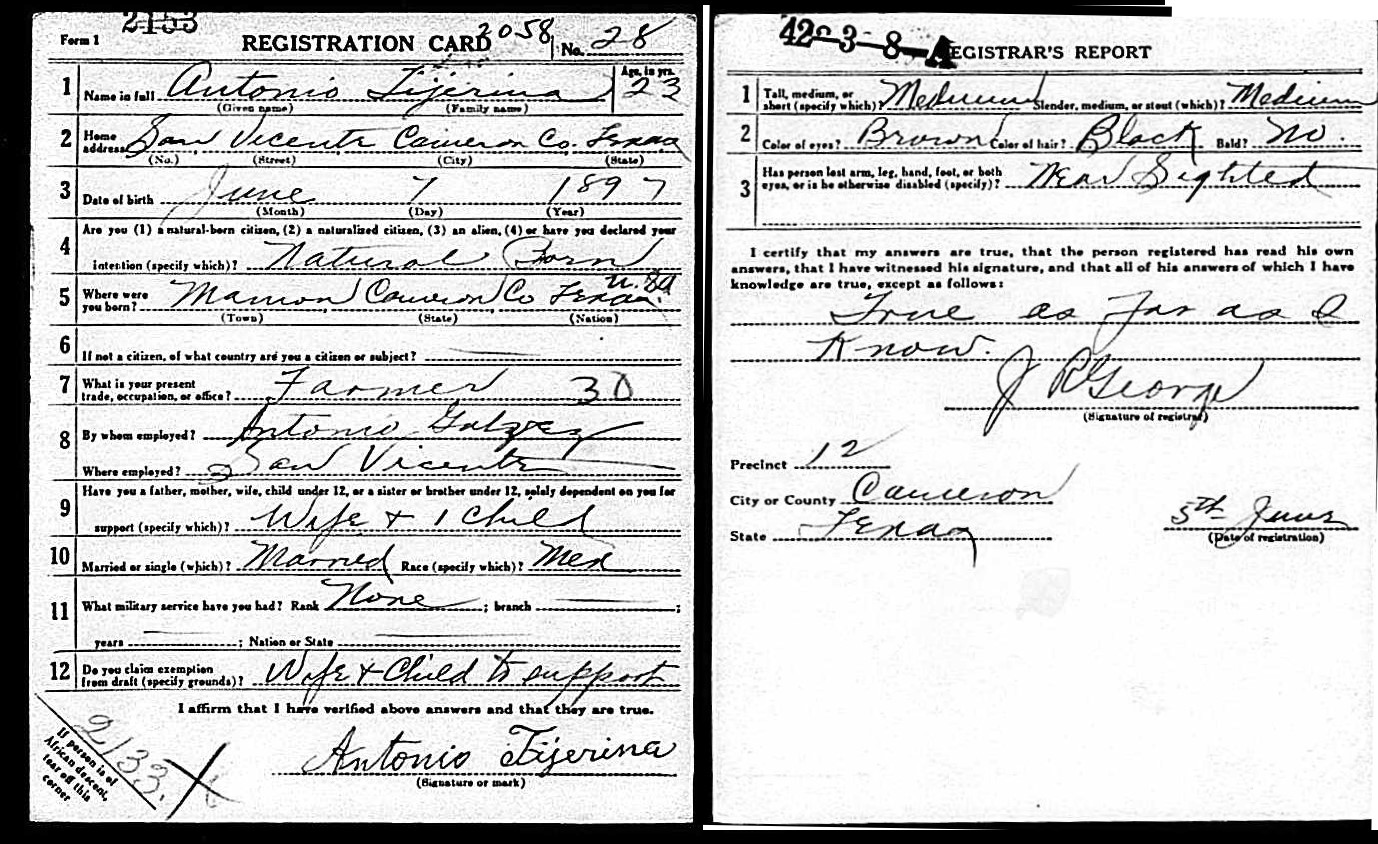
What a terrific story this could have been if any one of us had sat down with our World War II relatives and recorded or taken notes of their experiences. An opportunity was missed by us all. Sadly, it is forever gone.
1 The National Security Act of 1947 became law on July 26, 1947. It created the Department of the Air Force. Under the Department of the Air Force, the act established the United States Air Force.
2 Granada opened August 27, 1942, and reached a peak population of 7,318 persons by February 1943.
3 With prolonged cold and wetness, the feet can lose circulation and nerve function. They are also deprived of the oxygen and nutrients that the blood normally provides. Sometimes the loss of nerve function can make other symptoms, such as pain, less noticeable.
TonyO's Note: I visited the Normandy American Cemetery at Colleville-sur-Mer, France, in 1986 and again in 2007. Walking between the thousands of crosses and Stars of David is a somber, sobering experience that lies still in my soul.
©Copyright texan@atudemi.com - January 2022